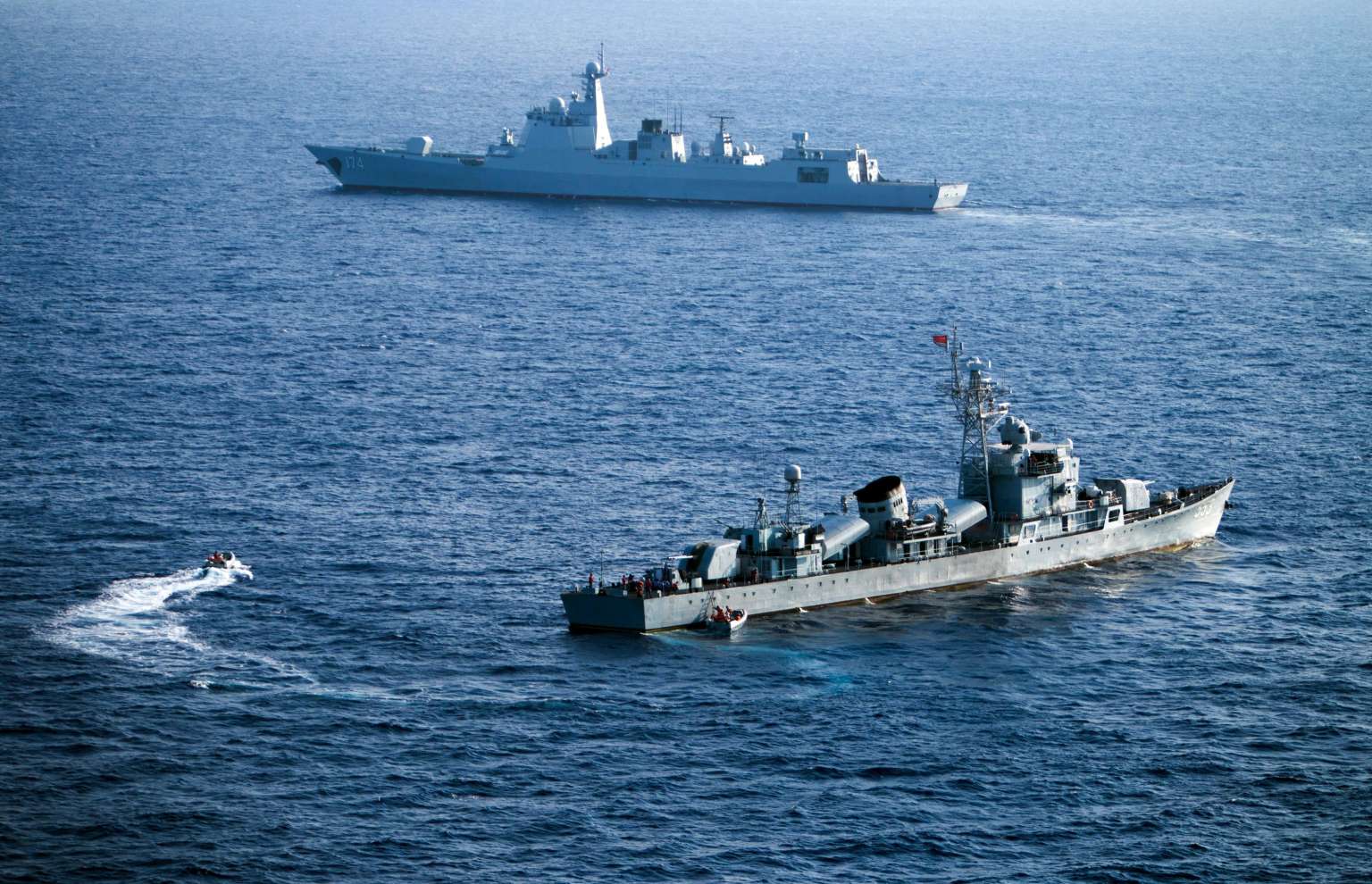Nato has 'no legal platforms' to intervene militarily in South China Sea
Sign up now: Get insights on Asia's fast-moving developments

Crew members of China's South Sea Fleet taking part in a drill in the Xisha Islands, or the Paracel Islands, in the South China Sea on May 5, 2016.
PHOTO: AFP
Follow topic:
SINGAPORE - Nato will not intervene militarily in the South China Sea territorial disputes because it has "no legal platforms" to do so, General Petr Pavel, who chairs the Nato Military Committee, said on Friday (June 3).
But the 28-nation alliance, comprising countries mostly in Europe and North America, is still keen to support countries in the region which are willing to develop defence capabilities, or share intelligence and best practices in maritime security.
On this front, General Pavel said that Nato is also keen on "looking at opportunities" between Nato and Asean.
"We're trying to stay as much within our region and not interfere in other region's issues," he said at a media roundtable attended by The Straits Times and media representatives from Japan and Vietnam.
The US-led military alliance, in recent times, has been actively acting as a main check on Russian expansionism and has also deployed troops in Afghanistan.
"We will tread carefully on the Chinese claims and moves in the South China Sea because we're not clear about the intent of China ... But we will be supporting any regional solutions based on political and diplomatic negotiations," General Pavel said.
Nato supports the peaceful resolution of conflicts, urging parties embroiled in territorial disputes in the South China Sea to adhere to international rules and norms, he added.
Beijing claims almost all of the South China Sea, and is now embroiled in a territorial dispute with Brunei, Malaysia, Vietnam, Taiwan and the Philippines over conflicting claims to territory in the waterway.
A ruling is expected soon on China's claims to the South China Sea in a case that the Philippines has brought to the Permanent Court of Arbitration in The Hague. Beijing has lashed out at the tribunal for "abuse of power", and said it will ignore its decision.
The roundtable was held on the sidelines of the first day of the Shangri-la Dialogue, a high-level security forum organised by the London-based International Institute for Strategic Studies.
Japanese Prime Minister Shinzo Abe announced the "Proactive Contribution to Peace" security policy at the forum two years ago, and General Pavel said on Friday that Nato "does not see any reason to oppose" the wartime aggressor's reinterpretation of the pacifist Constitution, so long as there is political agreement.
Japan's security bills will allow the country to deploy its military overseas and play a much more prominent strategic role in peacekeeping and collective self-defence.
Another regional concern is the North Korea nuclear threat, which requires a careful balancing of the power dynamics of China and the US.
General Pavel noted that it benefits China for relations to be status quo as it keeps the US at arm's length - a united Korea will mean having a US ally "in its backyard", he said.
"There needs to be sufficient trust between China and US, for China to be more willing to exert more pressure on the regime and to resolve the North Korea issue," he said.
"There is very little room for any meaningful dialogue unless North Korea is under pressure, which they do not feel now."

